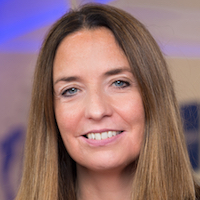 AirPlus International has made mistakes by not asking customers the right questions in advance. It’s a humble admission by executive director of marketing Yael Klein about a challenge many companies face. She believes that recognizing the problem will help the business travel industry innovate. Klein also encourages people to accept the risks of failure. Failing is an important way to learn, and every new idea can bring lessons.
AirPlus International has made mistakes by not asking customers the right questions in advance. It’s a humble admission by executive director of marketing Yael Klein about a challenge many companies face. She believes that recognizing the problem will help the business travel industry innovate. Klein also encourages people to accept the risks of failure. Failing is an important way to learn, and every new idea can bring lessons.
How do you recognize that your product idea has really flopped? If one day you find yourself in the Museum of Failure in Sweden along with Nokia’s mobile phone play console N-Gage and Colgate’s first and last deep-freeze lasagne.
Developing new ideas and getting inspired is important in every industry. However, I have the feeling that our industry is having a bit of a hard time with innovations. Don’t get me wrong, we don’t lack creativity or innovation. We are able to develop clever ideas and thus react to the constantly changing behavior of business travelers. But I believe that many good approaches are doomed to failure in advance simply because we’re asking the wrong questions, or in some cases, no questions at all.
“All the effort and effort is free if you don’t meet customer needs,” wrote Rob Fitzpatrick in his guide “The Mom Test.” From my own experience, I can only agree with that. Product development that happens without the involvement of customers is usually doomed to fail.
Ultimately, the customer decides whether a product is good or bad. Colgate, for example, must have asked the wrong questions or no questions at all. There is no other way for me to explain how a company that produces toothpaste suddenly serves its customers a frozen meal. And this in the truest sense of the word.
Every company uses its own experiences to determine what customers really want and what they actually get in the end, including AirPlus. Let me give you an example: Some time ago I had the great idea, in my opinion, of showing the value-added tax for rental car bookings in the British market. Since we get VAT back automatically in Germany, I saw no reason why customers should reject such added value. Well, the customers apparently did. The idea could not prevail. Today I know that we should have talked to the customers in advance, asked them if they would see an advantage for themselves, use it, be willing to pay for it and so on. According to Fitzpatrick, only by asking such questions can you tell whether an idea may be successful or not.

Of course, we at AirPlus did not ask these questions at the time. Instead, we took it for granted that customers would use the product. After all, that’s what they do here in Germany. We have learned that we cannot simply adapt products and ideas to other markets without knowing the customer’s needs in advance.
Another learning for us was our approach to a carbon-offset project through which customers would offset their CO2 emissions financially through us. We approached the customer in simple terms by asking, “Do you want to promote climate protection with us?” It was a classic wrong Mom question, as author Fitzpatrick would immediately confirm to me. “By asking good questions we can expose many bad ideas before we invest resources.” Yes, absolutely.
Every company has to find out for itself what works and what doesn’t. That idea didn’t work for us, or maybe we asked the wrong people what they thought of the idea. This, despite the fact that as experienced providers we have the best access to customers and thus the ideal conditions to select the right people for an idea. It doesn’t always have to be travel managers, but also the travelers. If someone develops a new toy, he does involve all parties, in this case parents and children, at least according to author Fitzpatrick.
Why am I telling you all this? I believe our industry should rethink innovation, exploit untapped potential and increasingly take the customer’s view into account — just as lean startups do. They rely on learning by doing and develop their ideas together with the customer, without long advance planning. Unlike us. As an established company, we are far too anchored in our conventional way of working and thinking. We still assume that we know our customers and their wishes.
While we’re on the subject of changing mindsets, I think we should also stop thinking that it is bad if an idea fails. Failure is important in order to develop and learn.
Sometimes an idea is not wrong, but simply thought up too soon. The Museum of Failure, for example, has the Apple Newton. Do you remember that revolutionary first pocket computer Steve Jobs launched around two decades ago? At that time hardly anyone wanted to buy the device. The technology was not mature enough and society was not yet ready for a digital companion. But even then, the vision was right. Through the reactions of the customers, the company learned where the mistakes were. It continued tinkering with the idea, right up to the iPhone X.
This should give us courage. It shows that ideas are best developed in exchange with those who are ultimately to benefit from them. And it shows that we are not all perfect, but that we learn with every new idea.
Related
• Mat Orrego On Approaching And Solving Problems In The Travel Industry, Pt. 1
• Kurt Knackstedt On Fintech And ‘Distributech’
• Simon Barker On Whether The Corporate World Is Ready For New Technology